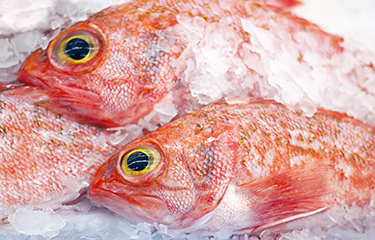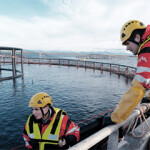Canadian fishing firms battle over future redfish quotas

Canada’s Department of Fisheries and Oceans is performing a consultation process on Atlantic redfish, with the future of the fishery at stake.
Even with a full-scale fishing season still at least a year away, Canadian harvesters are already battling over who will have access to the fishery.
A large-scale commercial season for redfish – S. norvegicus, also known as ocean perch or Atlantic redfish – hasn’t existed in the Gulf of Saint Lawrence since 1995, when the population of the species collapsed and a fishing moratorium was imposed. Even as recently as 2010, the species was still considered threatened, according to the CBC.
However, a sudden rebound of the species thanks to three extremely productive year-classes will likely allow for a full commercial harvest of the species within the next few years. The DFO estimates the biomass has grown by 4.3 million metric tons (MT) in the last decade and predicts the future annual catch in Canada's largest area for redfish fishing could be as large as 50,000 metric tons, worth tens of millions of dollars.
Historically, according to the Fish Food and Allied Workers Union (FFAW), the offshore fishery held the vast majority of the quota – it held 74 percent of the redfish quota in the Gulf of Saint Lawrence and a portion in Cabot Strait, with only around 15 percent of the quota allocated to the inshore sector.
Some companies and officials in Nova Scotia, including Nova Scotia Minister of Fisheries and Aquaculture Steve Craig, said they want quota allocations to remain unchanged from two decades ago.
"Historically we had these quotas pre-1995," Craig said. "I see no reason to change them now. It's something we've invested in as Nova Scotians."
The offshore quota is split between nine companies. Five – Mersey Seafoods, Clearwater Seafoods, MV Osprey, Louisbourg Seafoods, and Acadian Fish – are located in Nova Scotia; while Belle Bay, Caramer Limited, and Ocean Choice International are located in New Brunswick, and Madelipeche is in Quebec.
However, the FFAW is calling for the DFO to commit to giving 50 percent of the quota to the inshore fleet.
“The Unit 1 Redfish Fishery is expected to be commercial in the next two years, and presents the opportunity to be amongst the most-important economic generators for the west coast of Newfoundland and Labrador for the next several decades – but only if the inshore receives access,” the FFAW said in a press statement. “This is a decision that threatens to transfer the future wealth of our ocean resource to corporations and not the people in the adjacent communities."
FFAW President Keith Sullivan has called on the DFO to suspend its “flawed consultation process,” which he said has only consisted of a five-point questionnaire and no public meetings.
The FFAW is arguing that the inshore fishery will catch and land the fish in Newfoundland communities adjacent to where they exist, and will then process them locally. In contrast, the FFAW claims the offshore sector will not land fish locally and then “ship product to a low-wage country for further processing.”
Offshore companies have already fired back against FFAW’s claims. Ocean Choice International Co-Owner and CEO Martin Sullivan said the proposal by FFAW would take jobs away from other Canadians.
"The FFAW executive has vilified the offshore fishery,” he said. "And now this quota is under attack by the union to simply be taken away. When successful, this destroys the livelihoods of offshore harvesters and plant workers, as well as those who hold positions supporting the offshore sector, who are Newfoundlanders and Labradorians, and in many cases, members of the FFAW."
The Atlantic Groundfish Council, along with Ocean Choice International, also co-released a series of rebuttals to some of FFAW’s claims.
“Local offshore harvesters, their facilities, and their employees are adjacent to Unit 1 redfish,” the release states. “Offshore harvesters are Newfoundlanders and Labradorians. Ironically, most are dues-paying members to the FFAW. They live adjacent to the resource and deserve to make a living as much as anyone else.”
FFAW's claim that fish caught by their vessels would be shipped to “low-wage countries” is incorrect – they harvest and process fish at sea, "some of which will be further processed in inshore plants in Newfoundland," AGC and Ocean Choice said.
Photo courtesy of hlphoto/Shutterstock






Share